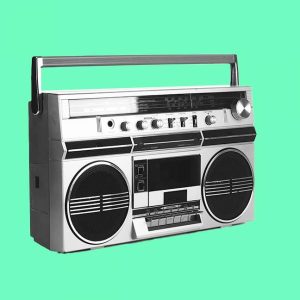Podcasts are one of the most popular mediums of audio content with an estimated 120M monthly podcast listeners in the US alone. Music plays a vital role in grabbing a listener’s attention and setting the tone of both a podcast series and individual episode. With so many podcasts available, grabbing someone’s attention immediately can be pivotal for keeping them listening.
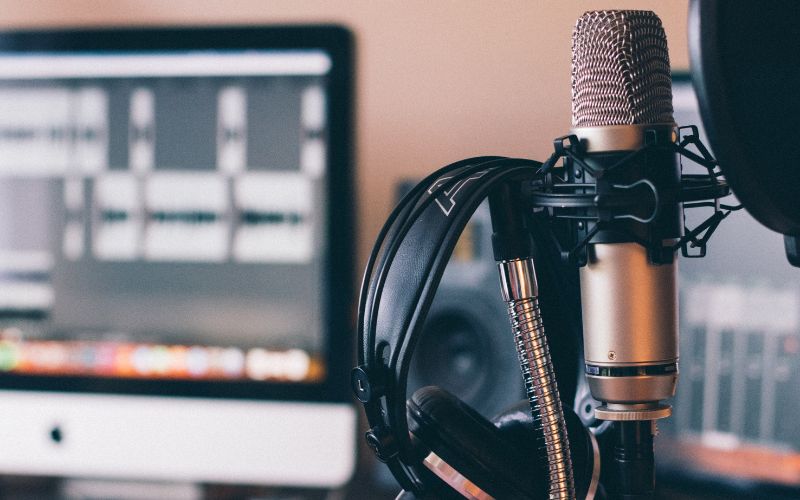
Not sure what we mean? Just think back to the, now iconic, ‘Bad Dreams’ introduction music to the ever-popular Serial podcast. It set the tone and kept listeners coming back for more, but in addition to that, it was a real earworm. If you think about your favorite podcasts, they all have a distinctive sonic identity that makes them really stand out from the, very noisy, crowd.
Anywhere you need to use music, you’ll need to make sure you have the right to use that particular track, and podcasts are no different. As music licensing experts, we’re here to help you, the podcasters, learn everything you need to know about finding and licensing the very best podcast intro music around.
What music can you use in podcasts?
When it comes to adding music to your podcast, whether it’s intro music, a background track to a segment or simply for sound effects, there are a few things you need to consider. In terms of the music you can use, it’s fairly simple. You either need to own the piece of music yourself, or obtain the correct permissions to use it.
The music you can use for your podcast is:
Music you own
If you own all the rights to your music you can use it as you please. This doesn’t mean owning a physical copy of an album, or purchasing a digital download, it means owning it outright.
It means you need to be the owner of that piece of music. This generally means that you are the composer or have written and recorded an original piece yourself. If you’re a recording artist with a record deal, there may be some limitations on the use of your own tracks, but generally, if you have written the music yourself, you can use it as a theme song.
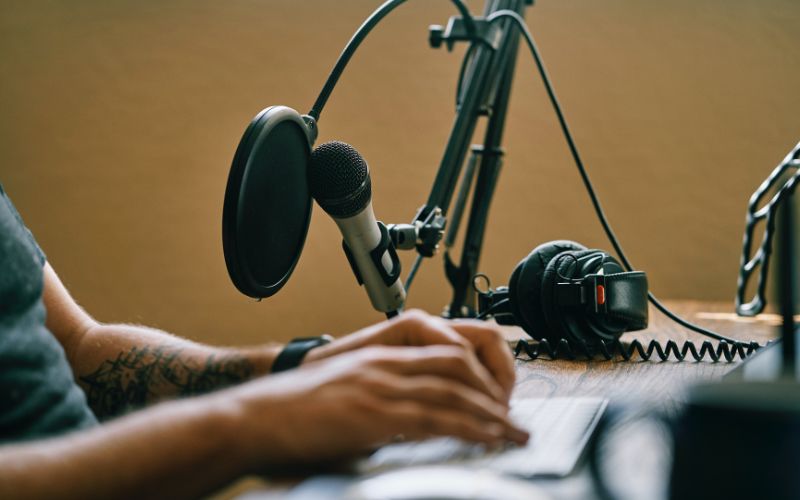
Music you have licensed
Most podcasters are not also composers or musicians, so using music you own outright is probably a non-starter. This is where music licensing comes into play. The majority of music available to use for your podcast will need to be licensed. You can do this through music licensing platforms like Lickd, or else directly through the license owner of a track.
Communicating directly with a rights owner can be both time-consuming and expensive. Not only do many major labels not reply to requests for things like this, they may well charge you a very large fee if they do respond. Lickd has direct relationships with these labels and lets you license some of the biggest tracks around at the click of a button. Licensing music in our collection won’t cost you a crippling amount either, and it will mean you avoid infringing on copyright.
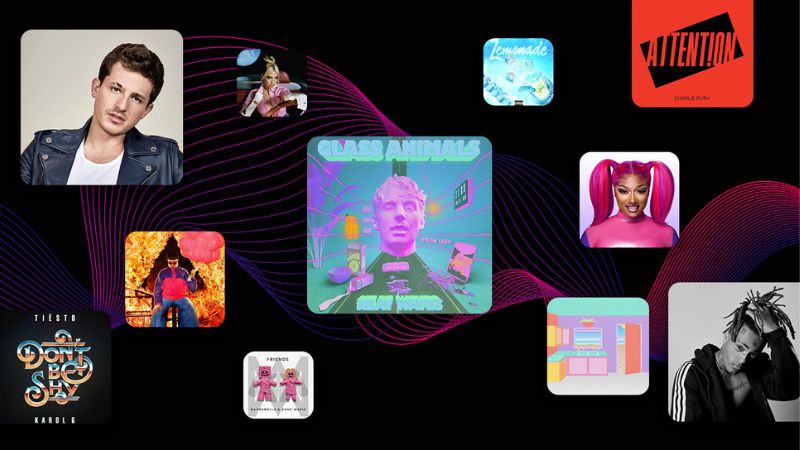
Royalty-free music
The other option is to use royalty-free music. This is music that you can use without having to pay royalties. You may have to make a one-off payment or meet other conditions. On paper, this may sound like your best option but generally, you want to supplement chart music tracks with music that’s available from royalty-free libraries. Lickd is the only place where you can get chart music and royalty-free production music all in one place. From as little as $10 a month, you can get access to over 100k royalty-free music tracks for your social media projects.
What music can you not use on podcasts?
So what music do you need to be wary of using? There are a few sources you need to avoid when you’re choosing music for your podcast and these include:
Music you’ve bought
Just because you own a CD, vinyl or digital download it doesn’t mean you’ve bought the rights to use it on your podcast, unfortunately.
Music from a streaming service
The same thing applies to music that you obtain through a streaming service like Spotify, Apple Music or Deezer. Paying your monthly subscription doesn’t give you the right to use that music for commercial purposes or in your own content.
Music from the radio
As with the above, you can’t record music from the radio or rely on using a radio show in the background of your podcasts to give you an intro, outro or background music. You don’t have the legal right to use this for your podcast.
Simple licensing for podcasts
The simplest way to license podcast music is with Lickd. We’ve developed close ties within the music industry to help you license the very best tracks from the biggest recording artists. When you license music through Lickd you’ll likely be able to use it on multiple platforms, including music for Instagram, YouTube, Vimeo and music for Twitch, but there may be some limitations for podcasters.
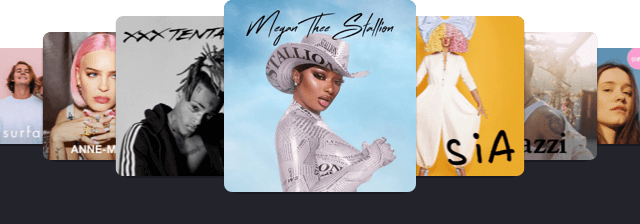
When you’re choosing your favorite tracks to add to your podcast, Lickd remains your best option. Any track you license with us can be used for your podcast on YouTube, Facebook and Instagram.
Please note – If you are hosting your podcast on Spotify, Apple Music or a similar podcast platform you’ll need to get in touch with Lickd to see if we can clear the music for use before your work is published.
Why it’s important to use the right music for your podcast
Finding the right music for your podcast is essential. You wouldn’t want something jarring, like a heavy metal track on a podcast all about your new baby, for instance. The right music can set the tone for your whole podcast, from the intro right the way through to the outro that’ll set up your next episode.
Your intro music is probably the most important thing to get right. It’s the very first thing a new listener will hear, and it can be one of the main things people relate to your podcast. It will set the tone for everything that’s about to follow too, and you want to make sure you match those expectations.
Finding the right sound for your podcast
When you use music in your podcasts it gives people an idea of what to expect from the content they’re about to listen to. Start with something sinister for your real crime podcast for instance, or use something chilled for a podcast about design. Is classical music right for your new football podcast? Or do you want to go for something a little more popular and modern? What about hip hop for your film podcast?
The options are endless, and it’s important to still put your own spin on it, but just make sure you match the tone of your whole podcast to the music you do choose.
The different types of music for podcasts
There are various points throughout a podcast where you may need to use music. It’s something you need to consider for the very start of your podcast, all the way through to the end.
Intro music
This is the part that’ll grab your listener’s attention. It’ll set the tone for the rest of your podcast, but it can also be where someone could turn off. You want to use a clip that’ll set the mood, sure, but if someone’s tuning in every week, do they need to sit through a full minute of music? Consider keeping your intro music short, perhaps 5-10 seconds, but make it something particularly distinct that really helps the listener know what to expect. If you have the right track, your listeners may not mind listening to something a little longer.
Background music
This is the music that’ll crop up throughout your podcast. It could be in the background as the host talks, or it could help transition between segments. If you’re using music during key parts of your podcast you need to consider how well it blends with the hosting and how it can add to the tone of your podcast.
Always be careful of the volume of your background music, and make sure it’s something that allows people to still pick up what you’re saying. A good background track can help bridge the gap between key moments of dialogue too.
Outgoing music
You always want to leave your podcast with people wanting more. Knowing a podcast is over when a particular beat kicks in can be useful for many listeners, but if you choose a track they love, they may even listen to the very end. It’s another chance to really set your audio identity apart.
Some shows will pick something different for each outro to help cliffhangers hit home and build tension before the next episode. Whatever you choose, it’s your chance to set the mood people will leave your podcast in.
Tips when using music for podcasts
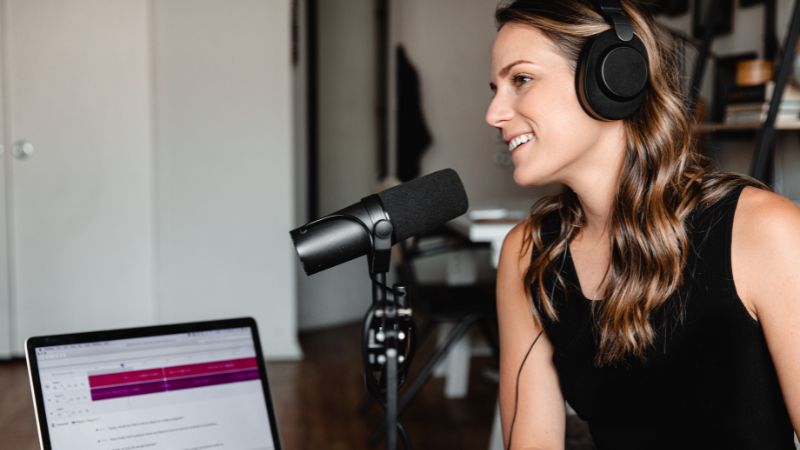
When you’re choosing your podcast music, whether it’s an intro or simply a backing track, there is a lot to consider. As experts in helping the best content creators license music for their podcasts, we know a thing or two about getting it right.
1. Grab your listener’s attention with the right intro – we’ve covered this already, but we really want to emphasize just how important nailing the intro is.
2. Keep your intro short – you want to grab someone’s attention and keep it. Many podcasts go for a maximum of 30 seconds, but consider something shorter like 5-10 seconds. Depending on your podcast, and the sounds you use, you could even get away with something distinctive that’s only 1-2 seconds long.
3. Be careful with the volume – you don’t want the music you use to blare out suddenly. Make sure you match it to the rest of the show, and if you’re using background music, make sure it’s quieter than any narration.
4. Consider using stems for background music – using a whole song, with vocals or multiple instruments may feel like a good idea, but it can very easily make for a noisy experience. Consider grabbing an individual stem, like one guitar riff or another instrumental piece for your background music.
Now you know all about how to license podcast background music! So what about Lickd?
Lickd negotiates with artists and labels ahead of time so that you don’t have to, gets good rates, and allows you to use a song without restrictions. In other words, you can use a song and monetize your video without running into a copyright claim. What’s more, Lickd has a catalog of over 1 million hit songs you can easily browse right now. You even get 25% off your first mainstream track if you sign up now. So go ahead, grab some music for your next project, and get back to creating!
